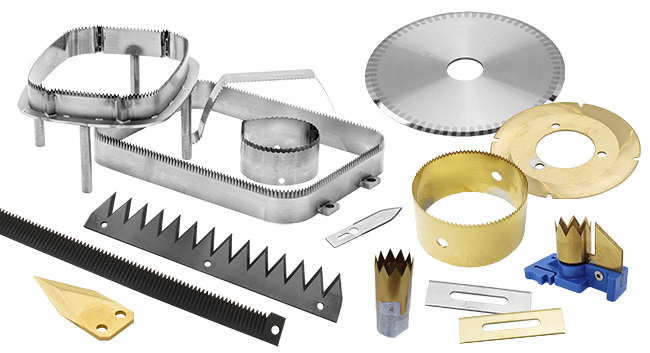The industrial blades and punches industry, like many sectors, faces increasing pressure to adopt sustainable practices. As businesses and consumers grow more environmentally conscious, companies are seeking ways to minimize their ecological footprint. At EDGE Industrial Technologies, we recognize the importance of sustainability and are committed to helping our customers achieve their sustainability goals.
In this article, we will explore the top sustainability concerns in our industry—longevity, material recycling capabilities, and best practices to support your business’s overall eco-friendly initiatives.
Longevity: Extending the Life of Machining Knives
One of the primary sustainability concerns in the industrial consumables industry is the longevity of blades and punches. High-quality, durable products not only enhance operational efficiency but reduce the frequency of replacements, leading to less waste. At EDGE, our brands—TGW International, Pearl Technologies, and Leverwood Knife Works—are dedicated to manufacturing products that stand the test of time. Here are some key features and measures that contribute to extending the life of industrial blades and punches:
Superior Materials
Using high-quality materials is fundamental to blade and punch longevity. Our products are made from premium steels and alloys that offer exceptional hardness and resistance to wear and tear. High-carbon and stainless steels are commonly used due to their strength and durability.
Advanced Coatings
Specialized coatings can significantly enhance the performance and lifespan of products. For example, titanium nitride (TiN) or diamond-like carbon (DLC) coatings reduce friction and wear, making the blades and punches more resilient to high-stress environments. These coatings also provide corrosion resistance, ensuring the products maintain integrity over time.
Precision Heat Treatment
Heat treatment processes, such as hardening and tempering, optimize the physical properties of the blade and punch material. This process increases hardness and strength while maintaining the necessary toughness to prevent brittleness. Precision in heat treatment ensures that products can withstand rigorous use without quickly degrading.
Rigorous Quality Control
Implementing stringent quality control measures is crucial to ensuring the longevity of blades and punches. We conduct thorough inspections and testing throughout the manufacturing process. This includes dimensional accuracy checks, hardness testing, and surface finish inspections to ensure each product meets our high standards.
Innovative Product Designs
Design innovations can also contribute to product longevity. Features such as optimized cutting angles, reinforced edges, and ergonomic designs reduce stress on the blade or punch during use, enhancing durability. Additionally, modular systems that allow for easy replacement of worn parts can extend the overall life of the tool.
Regular Maintenance and Sharpening
Maintenance practices play a significant role in extending blade and punch life. Regular sharpening, when applicable, keeps the cutting edge in optimal condition, reducing the need for frequent replacements. Proper cleaning and storage also prevent rust and corrosion, further extending the product’s lifespan.
Material Recycling Capabilities: Closing the Loop
Recycling is a cornerstone of sustainable practices, and in the industrial blade and punch sector for food processing, packaging, and converting industries, the ability to recycle these products is crucial. Blades and punches are typically made from high-quality steel and other metals, which can be recycled and repurposed, reducing the need for virgin materials. However, not all products are created equal when it comes to recyclability.
At EDGE, we craft our product with recycling in mind. This includes using materials that are readily recyclable and working with manufacturers to develop processes that facilitate easy recycling. By doing so, we help our clients close the loop on their production processes, ensuring that old blades and punches are given a new lease on life rather than ending up in landfills.
Best Practices for Eco-Friendly Operations
Beyond product longevity and recycling, there are several best practices that businesses can adopt to support their overall sustainability goals:
- Efficient Use of Resources: Implementing precision cutting techniques and properly maintaining equipment can reduce material waste and energy consumption.
- Sustainable Sourcing: Choosing suppliers that prioritize sustainable practices ensures the entire supply chain is eco-friendly. This includes sourcing materials from responsible and certified providers.
- Employee Training: Educating employees on sustainable practices and the importance of maintenance can lead to better handling and longer-lasting equipment.
- Innovative Technologies: Adopting new technologies that enhance the efficiency and lifespan of blades and punches can significantly contribute to sustainability efforts.
Partnering with EDGE for Sustainability
We are committed to helping our customers achieve their sustainability goals. And we understand that every business is unique, so we offer tailored solutions to meet diverse needs. Whether it’s through our high-quality, durable blades and punches, or recycling initiatives and ideas, we are here to support your eco-friendly journey.
Each of our brands—TGW International, Pearl Technologies, and Leverwood Knife Works—are dedicated to closely working with customers to develop recycling programs or find recycling partners that can efficiently recycle our products. By collaborating with us, you can ensure that your operations are not only efficient but environmentally responsible.
If you’re interested in learning more about our sustainable practices or want to explore our recycling programs, contact us today. Together, we can make a difference—one blade or punch at a time.


